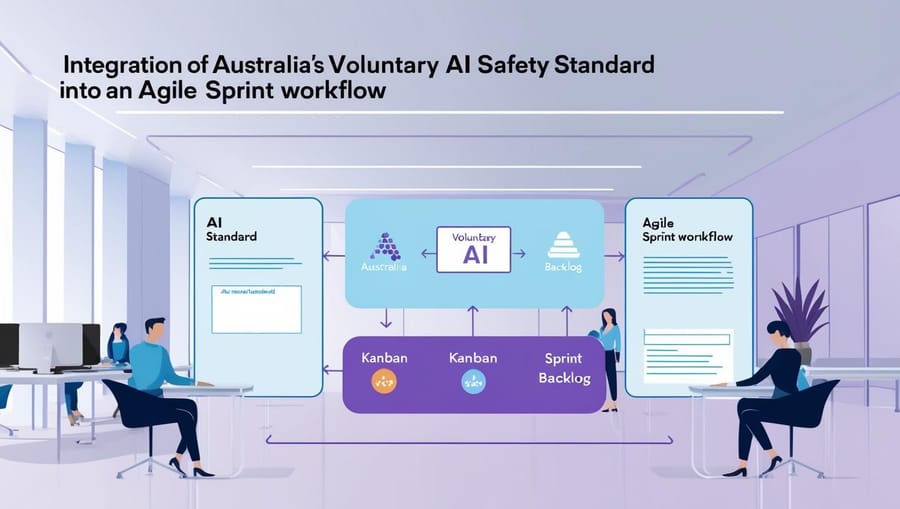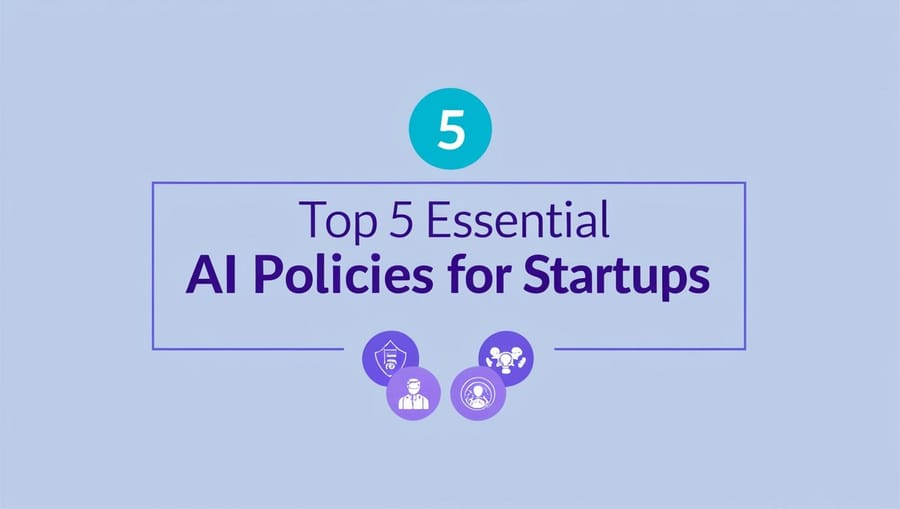Introduction: The Intersection of AI and ESG
Artificial Intelligence (AI) is rapidly shaping economies and industries, offering unparalleled opportunities for efficiency and innovation. However, with this growth comes increasing responsibility. Environmental, Social, and Governance (ESG) factors have become critical in ensuring that AI development aligns with sustainability, ethics, and corporate accountability.
Why AI Governance Matters for ESG
✅ Environmental Sustainability – AI's carbon footprint must be managed through energy-efficient models and green AI practices.
✅ Social Responsibility – AI should be developed and deployed fairly, preventing bias and discrimination.
✅ Governance & Compliance – Strong AI governance frameworks ensure ethical AI use and regulatory adherence.
🔹 Example: Tech companies like Microsoft and Google are investing in carbon-neutral AI initiatives, aligning AI innovation with sustainability goals.
1. Understanding AI’s Role in ESG
AI can both enhance and challenge ESG efforts, making governance a critical component in ensuring responsible AI development.
🔹 Environmental Impact: The Carbon Footprint of AI
- Energy-Intensive AI Models – Large-scale AI training (e.g., deep learning) consumes vast amounts of electricity, contributing to carbon emissions.
- Sustainable AI Practices – Companies are adopting efficient AI models, renewable energy for data centers, and carbon offset programs.
🔹 Example: OpenAI and Google are optimizing AI model architectures to reduce energy consumption without sacrificing performance.
🔹 Social Responsibility: Fairness, Bias, & Ethical AI
- Algorithmic Bias – Unchecked AI models can reinforce discrimination in hiring, lending, and healthcare.
- AI for Social Good – AI is being used for climate research, healthcare diagnostics, and financial inclusion.
- Transparency & Explainability – Ethical AI must provide clear decision-making processes to build trust.
🔹 Example: AI-driven recruitment tools must undergo bias audits to ensure fair hiring practices across diverse candidates.
🔹 Governance: AI Compliance & Ethical Standards
- Regulatory Compliance – AI must adhere to laws such as the EU AI Act, NIST AI RMF, and ISO 42001.
- Corporate Accountability – AI ethics boards and governance teams are crucial for responsible AI oversight.
- AI Risk Management – Organizations need AI risk heatmaps and monitoring systems to mitigate unintended consequences.
🔹 Example: The EU AI Act mandates transparency and human oversight for high-risk AI applications in finance and healthcare.
2. How AI Governance Supports ESG Goals
AI governance is the backbone of ethical and sustainable AI adoption. Companies must establish governance frameworks to align AI with ESG principles.
🔹 1. Implementing AI Sustainability Practices
✅ Optimize AI model efficiency to reduce carbon emissions.
✅ Use renewable energy sources for AI training and deployment.
✅ Develop AI-powered solutions to support climate change mitigation.
🔹 Example: AI-driven smart grids optimize energy distribution, reducing waste and promoting sustainability.
🔹 2. Ensuring AI Fairness & Social Impact
✅ Conduct bias and fairness audits for AI applications.
✅ Develop AI literacy programs for diverse communities.
✅ Establish human-in-the-loop (HITL) oversight for high-stakes AI decisions.
🔹 Example: Financial institutions use AI to assess credit risk while implementing fairness checks to prevent discriminatory lending practices.
🔹 3. Strengthening AI Governance & Compliance
✅ Align AI governance with ISO 42001 AI Management Standards.
✅ Create AI ethics boards to oversee responsible AI use.
✅ Implement real-time AI monitoring dashboards for compliance tracking.
🔹 Example: Enterprises deploying AI-powered fraud detection integrate governance frameworks to ensure regulatory compliance and transparency.
3. Challenges in Aligning AI with ESG Goals
While AI governance enhances ESG compliance, several challenges persist:
❌ High Energy Consumption – AI model training requires massive computational power.
❌ Lack of Standardized Ethical Guidelines – Global AI governance frameworks remain fragmented.
❌ Bias in AI Decision-Making – Inadequate datasets result in unfair AI outcomes.
🔹 Solution: Organizations must implement AI risk assessments, ethical AI standards, and sustainability strategies to address these challenges.
4. Future Trends in AI & ESG
🚀 AI-Powered Climate Solutions – AI will drive innovations in climate modeling, carbon capture, and sustainability analytics.
🚀 Stronger AI Regulations – The EU AI Act & U.S. AI governance policies will introduce stricter compliance mandates.
🚀 AI Ethics as a Business Differentiator – Companies prioritizing ethical AI adoption will gain consumer trust and competitive advantage.
🚀 Automated AI Compliance Tracking – AI governance platforms will offer real-time ESG risk monitoring dashboards.
🔹 Example: AI-driven ESG scoring models will help businesses assess their sustainability and ethical impact in real time.
Final Thoughts: Why AI Governance is Essential for ESG
AI’s potential to drive sustainability and social responsibility is immense—but only if governed effectively. Organizations must align AI practices with ESG goals to ensure ethical, fair, and transparent AI adoption.
✅ Implement AI governance frameworks to mitigate risks and improve compliance.
✅ Adopt sustainable AI practices to reduce environmental impact.
✅ Ensure fairness & bias mitigation to promote ethical AI adoption.
✅ Integrate real-time AI monitoring to track governance and ESG compliance.






